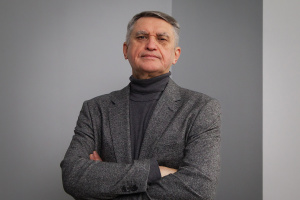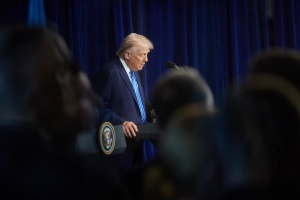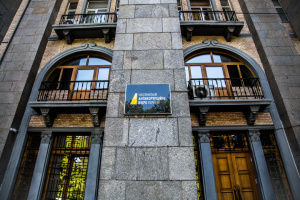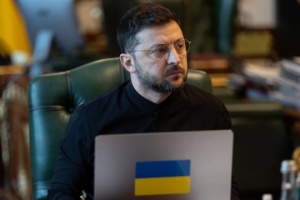
Russia likely mastermind behind environmental protests in Serbia - think tank
The disruption of such an agreement is in line with Russia’s interests, Guildhall reports referring to a non-public report by the Center for Defense Reforms entitled "Russian Influence on Environmental Protests in Serbia in August 2024”, Ukrinform learned.
"The general assessment of the protests in the Western expert space as being organized exclusively by environmental organizations and local entrepreneurs is also backed by Russia’s diplomacy efforts, including a statement by the Russian Ministry of Foreign Affairs, and by individual representatives of the Serbian government with ties to Russia, including Aleksandar Vulin, who had been awarded with the Order of Friendship by Russia’s Foreign Intelligence Service. The latter claimed a coup d'état was being plotted by the West and some NGOs,” analysts note.
"A network of organizations affiliated with Russia, including right-wing radical and extremist groups, football ultras, environmental and other public organizations, and opposition parties, are involved both in exerting influence aimed at derailing the agreement, and in mobilizing the population for street action,” the think tank stated.
According to the report, the campaign is promoted by Russia’s government-run media, including Russia Today Balkans, which has been covering the protests, including the main one in Belgrade on August 10, as well as Sputnik Serbia, which reported the arrests of campaign activists.
A network of extremist and right-wing radical organizations linked to Russia’s military intelligence (GRU), including People's Patrol, whose leader Damjan Knezevic visited in 2022 the base of the Wagner Group (GRU’s front organization) in St Petersburg, as well as Srbska Aktsia, Club 451 (Club 451), and their youth wing Zborashka omladina, Zentropa, and neo-fascist Obraz.
Analysts emphasize the participation in the campaign of Serbian ultras, in particular those rooting for FC Partizan, known for its connection with GRU unit 29155 as part of the campaign to destabilize Moldova, and FC Crvena Zvezda, which has partnership relations with Spartak Moscow’s ultras. The team’s sponsor is Russia’s energy giant Gazprom. According to the report, as part of the campaign, the ultras exerted influence aimed at opposing lithium mining in the country and highlighted the Kosovo tensions.
Also, the report separately analyzes the participation in the campaign of the network of Russia-affiliated political forces, including Dveri, Movement for the Restoration of the Kingdom of Serbia, New Democratic Party of Serbia, We are the people's power, and individual environmental organizations, for example Protect Jadar and Raђevina and KORS (Coalition for sustainable mining).
Analysts note that the researched participants, in particular representatives of extremist organizations and politicians, have been calling on Russia to "intervene". The leader of People's Patrol, Damjan Knezevic, made a corresponding statement, noting that he "understands the foreign policy of fraternal Russia as non-interference in the internal affairs of other states, but this is already an unstable position if you want to remain a superpower."
Also, in the past, Mladjan Djordjevic, one of the leaders of Serbian opposition and vice-president of Osloboђenje, headed by the KGB officer Andrey Belyaninov, previously published on X a joint photo with Leonid Reshetnikov, Lieutenant General of Russian SVR foreign intelligence service, colloquially referred to the governor of the Balkans and architect of Russian policy in the region, also complicit in GRU-masterminded coup attempts in Montenegro and Bulgaria. The caption to the photo called on Russia’s president to "intervene" and, if necessary, "overthrow the Vucic regime." However, the next day (August 23), Djordjevic stated that his page was allegedly hacked, and deleted the post.
In this regard, Atlantic Council analyst Ruslan Trad mentioned Reshetnikov's participation in the attempted coup d'état in Bulgaria, stating that meddling efforts are a characteristic feature of such activities.
"This is what Reshetnikov does: he meddles. His main focus region is the Balkans, and it is expanding Russian networks throughout the region. This is what he did in Bulgaria a few years ago (coup attempt - ed.)," says the analyst.
"Relations between Serbia and Russia are very specific and go beyond the prism of ‘fraternal nations and partners’. This is not the first time that Moscow has threatened Vučić – the previous times were also due to the disagreement of the Serbian leader regarding the creation of a Russian base in Serbia. Such hybrid tactics are part of Moscow's toolkit,” said Trad.
According to the expert, such threats are aimed not only at opposing the lithium mining agreement with the EU, but also at undermining Serbia's rapprochement with the EU.
"Lithium is an important topic (to the Russian Federation - ed.), but Vucic is increasingly demonstrating independence, which annoys Moscow. He publicly declares that the Kremlin is the most loyal ally, but this is not enough for Putin, who wants to hear comments on ‘fraternal nations’. Separately, Vucic would flirt with the EU, which is noticeable, as well as with China," the expert says.
In turn, Serbian journalist with Nova.rs, Miloš Jovanović, believes Djordjevic's calls to Russia to intervene are part of a hybrid operation by Russia aimed at intimidating Prime Minister Vučić in order to oppose his government’s rapprochement with the West.
"They seek to intimidate Vucic somewhat and not only because of the lithium agreement, no, as we are surrounded by NATO and EU countries and even those countries that are not part of these alliances want to become so. Vucic is undoubtedly under pressure from such countries. We are the only country, along with Belarus, which has not imposed sanctions against Russia or even against Wagner," the journalist emphasized.
It should be recalled that throughout August, nationwide protests against the agreement with the European Union on lithium mining and participation in the project of the British-Australian Rio Tinto campaign continue in Serbia. The campaign is accompanied by calls for the resignation of Prime Minister Aleksandr Vucic.




